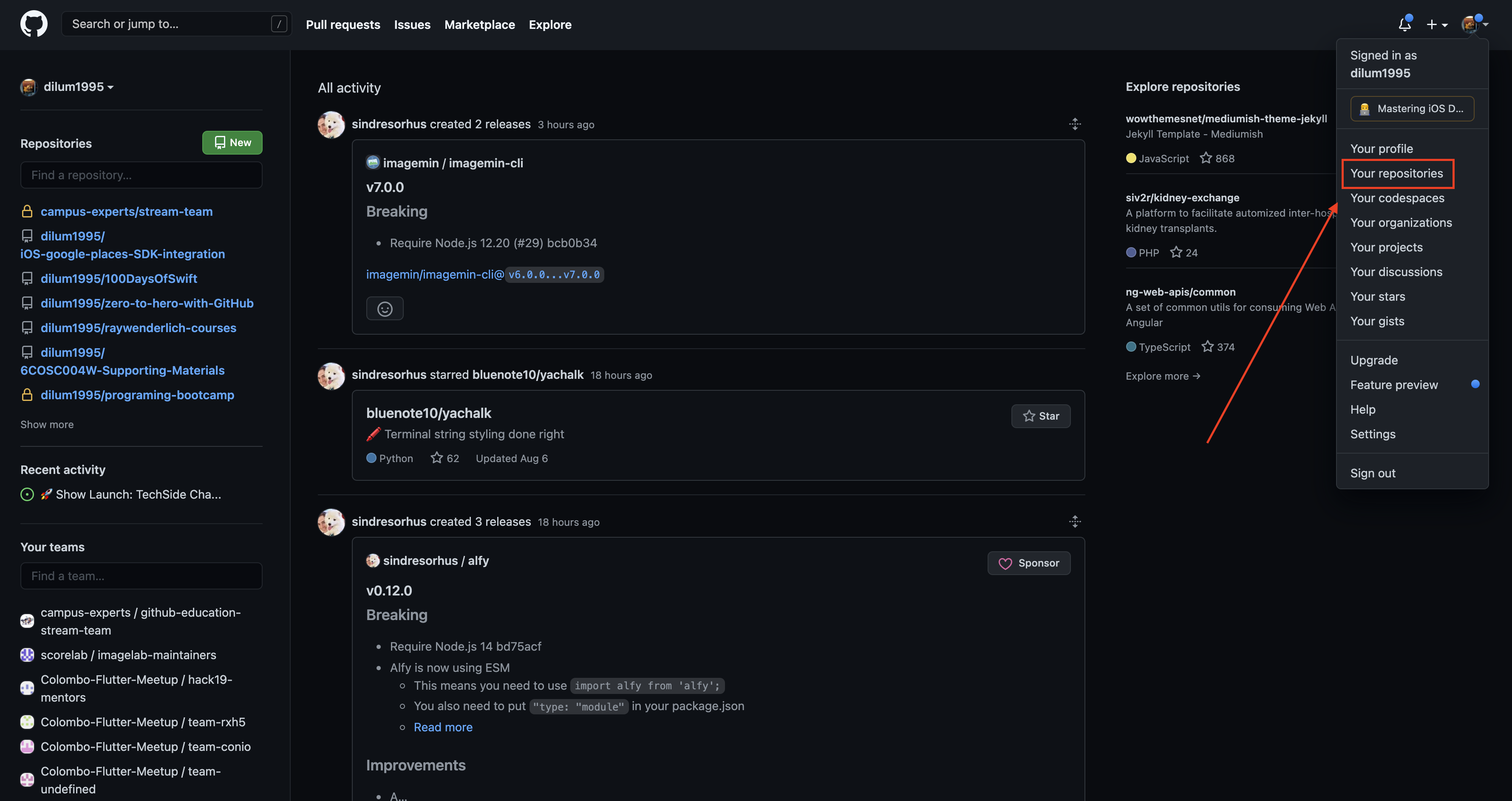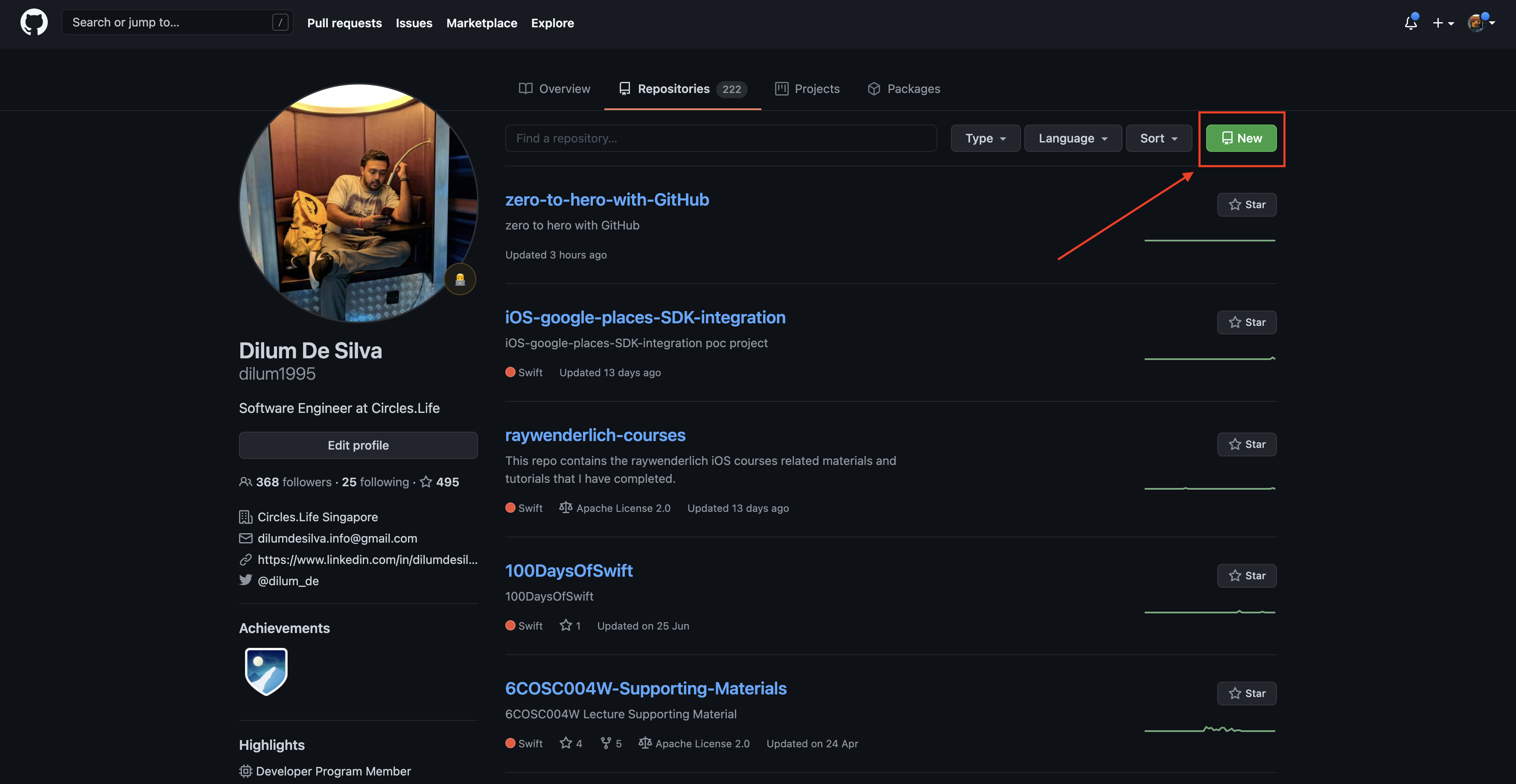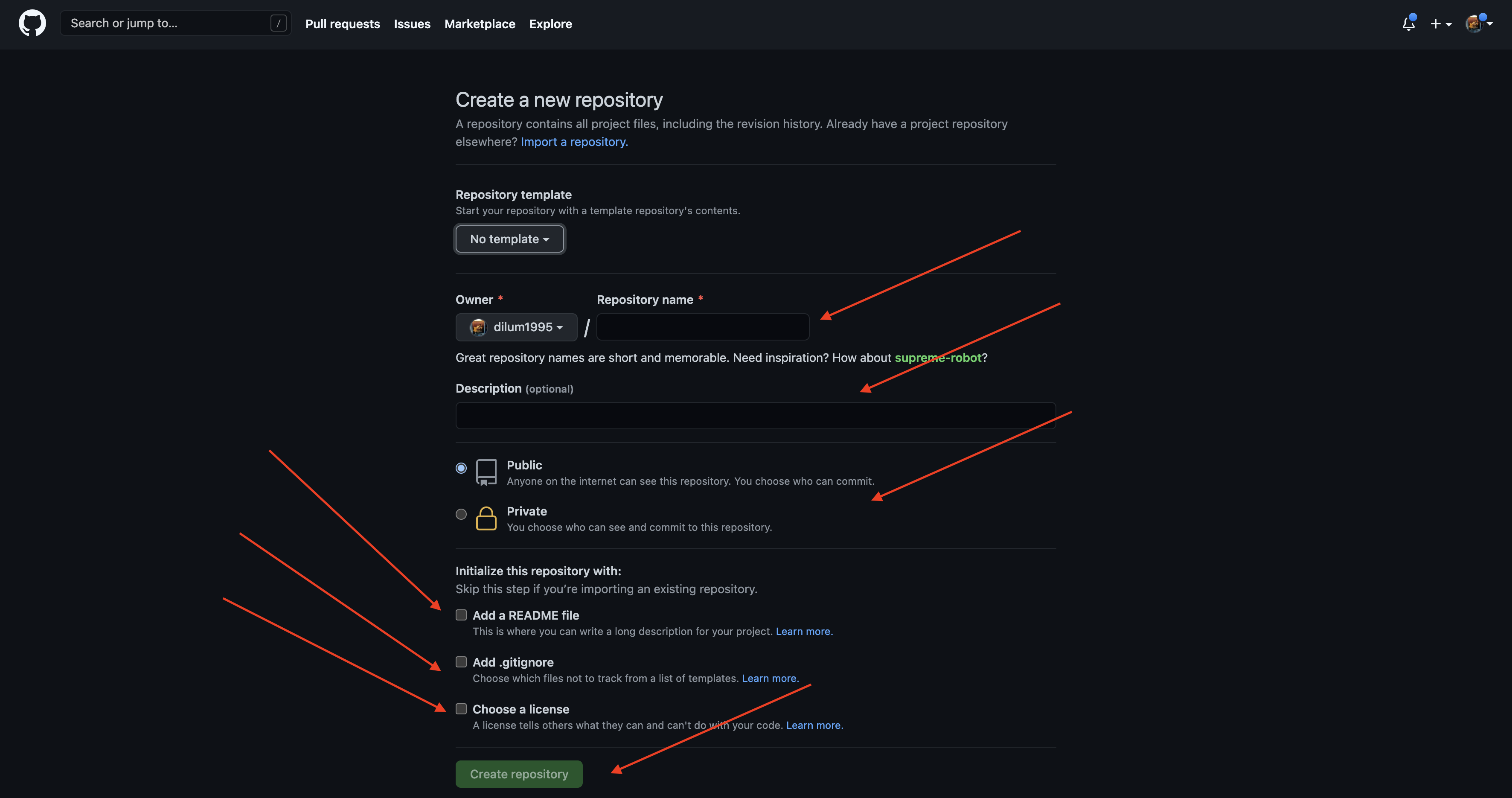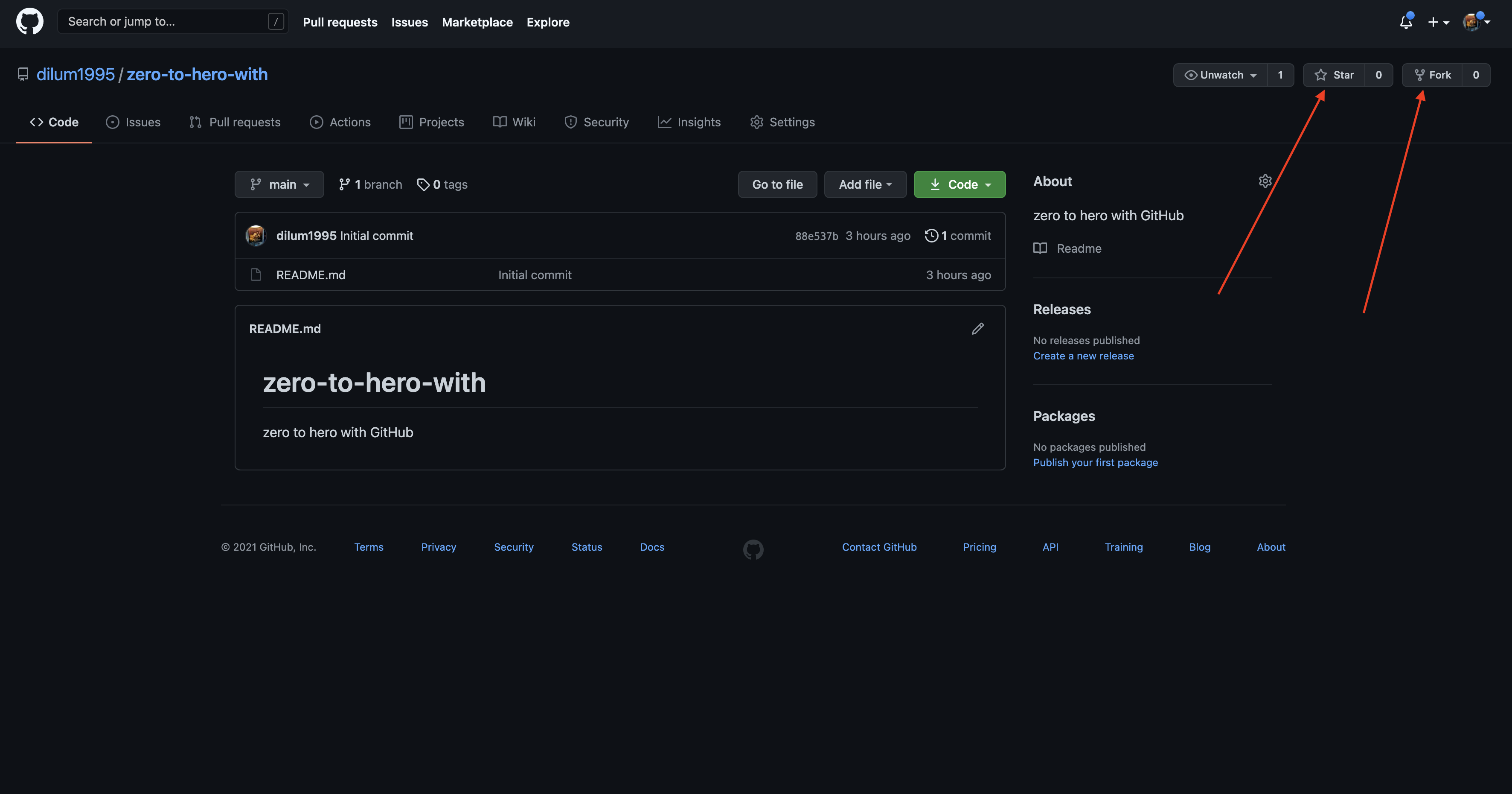This is a hands-on session to help the anyone to get familiar with GitHub. This session is based on following activities.
-
What is GitHub?.
-
My first GitHub Repository.
-
How to maintain a project with GitHub
-
My first Star
-
My first Fork
-
My first Clone/Download
-
My first Commit
-
My first Push
-
How to collaboratively maintain a project with GitHub
-
Other resources
GitHub is a web-based hosting service for version control using git. It is mostly used for computer code. It offers all of the distributed version control and source code management functionality of Git as well as adding its own features.
Founder: Tom Preston-Werner
Founded: 2008
Headquarters: San Francisco, California, United States
In order to create repositories (aka repos) you need to create GitHub account first. To create an account you can visit www.github.com and signup.
when you signup you can use your student email provided your university or school to claim whole bunch or other benifits including GitHub student developer pack
Before you start with git commands you have to make sure that you have install git in your computer. You can simply run following command to check whether you have installed git into your computer or not.
git --version
If you have installed git, once you run this command it will show you your current git version of your computer. If not you can vist following link and install git to your computer.
Once you dowload and make changes or modifications to the project next step is commit changes to your remote git server. To do that you can follow below mentioned steps.
-
navigate in to the project directory as the first step.
-
write git status command to check whether your changes have been captured.
-
write git add . command to add all the captured changes to your remote git server.
cd project_directory
git status
git add .
This step will help you to upload all your recently made changes to the online git repository. To do that you have to enter git push command.
git push





